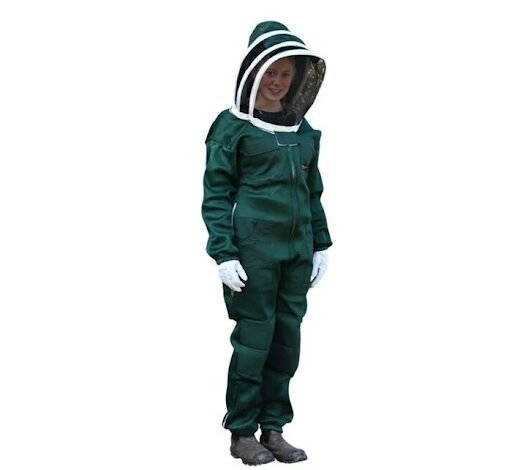The Role of Women in Beekeeping: A Journey of Empowerment and Sustainability

Beekeeping, a practice steeped in tradition and necessity, has long been associated with rural landscapes and agricultural communities. Historically, it has been a male-dominated field, but the winds of change are sweeping through apiaries around the world. Women are increasingly stepping into the role of beekeepers, transforming this ancient practice into a powerful tool for empowerment, sustainability, and economic growth. As women take on more prominent roles in beekeeping, they are not only contributing to the preservation of our environment but also redefining gender norms and creating new opportunities for themselves and their communities.
A Historical Perspective: Women’s Quiet Strength in Beekeeping
For centuries, beekeeping was often seen as the domain of men, particularly because of its physical demands and the technical expertise it required. However, women have always played a vital, if understated, role in this practice. In many cultures, women were the ones who tended to the hives, extracted honey, and managed the household’s beekeeping activities, often in the background, while the men were credited with the work.
In some societies, women were even considered the primary custodians of beekeeping knowledge, passing down secrets and techniques through generations. Their involvement, though crucial, was rarely acknowledged or celebrated. But today, that narrative is changing. Women are emerging as leaders in beekeeping, driven by a desire to contribute to environmental sustainability, achieve economic independence, and break free from traditional gender roles.
The Empowerment of Women Through Beekeeping
Beekeeping has proven to be an incredibly empowering activity for women, especially in rural and developing areas where opportunities for economic independence can be scarce. Here’s how beekeeping is transforming the lives of women across the globe:
1. Economic Independence
For many women, beekeeping has opened the door to financial autonomy. By producing and selling honey, beeswax, propolis, and other bee-related products, women can generate a steady income that supports their families. This economic empowerment is particularly significant in regions where women have limited access to formal employment or entrepreneurial opportunities.
The startup costs for beekeeping are relatively low compared to other agricultural ventures, making it accessible for women who may not have significant capital to invest. With a few hives and basic training, women can start their own beekeeping businesses, scaling them up as they gain experience and confidence. The income generated from beekeeping not only improves their financial situation but also enhances their social standing within their communities.
2. Environmental Stewardship
Beekeeping is not just about honey production; it is also a critical component of environmental conservation. Bees play an essential role as pollinators, ensuring the health of ecosystems and the productivity of crops. Women who engage in beekeeping often develop a deep connection with nature, leading them to adopt sustainable practices that benefit both their hives and the broader environment.
Female beekeepers frequently emphasize the importance of maintaining healthy bee populations and protecting their natural habitats. They are often at the forefront of initiatives to promote biodiversity, combat the use of harmful pesticides, and educate others about the ecological significance of bees. Through their work, women beekeepers are helping to safeguard the environment for future generations.
3. Community Leadership and Social Change
As women become more involved in beekeeping, they are not only transforming their own lives but also bringing about positive changes in their communities. Female beekeepers often form cooperatives or associations where they can share resources, knowledge, and support. These groups provide a platform for women to collaborate, learn from each other, and advocate for better policies and practices in agriculture and environmental conservation.
In many cases, women who start as novice beekeepers quickly become leaders and educators within their communities. They organize workshops, training sessions, and outreach programs to spread the knowledge of beekeeping and its benefits. By doing so, they inspire other women to take up beekeeping, creating a ripple effect that strengthens the entire community.
Moreover, women beekeepers often challenge traditional gender roles and stereotypes. In societies where women’s roles are traditionally confined to the home, beekeeping offers a way to step outside these boundaries and prove their capabilities in a male-dominated field. This shift not only empowers individual women but also contributes to broader social change.
4. Education and Knowledge Sharing
Education is a powerful tool for empowerment, and women in beekeeping are using it to spread knowledge and build networks of support. Through formal and informal channels, they are teaching others about the intricacies of beekeeping, from hive management to honey extraction and product marketing. These educational efforts are vital for the sustainability of beekeeping practices and the growth of the industry.
Women are also playing a key role in preserving traditional beekeeping knowledge while integrating modern techniques that enhance productivity and sustainability. By sharing their experiences and expertise, they ensure that the art and science of beekeeping are passed down to future generations. This knowledge-sharing not only strengthens the beekeeping community but also empowers more women to become self-reliant and economically independent.
The Importance of Proper Gear: The Women’s Bee Suit
As more women engage in beekeeping, the need for appropriate, well-fitting protective gear has become increasingly apparent. Traditionally, beekeeping suits were designed with men in mind, often overlooking the unique needs and body shapes of female beekeepers. This oversight could lead to discomfort, reduced mobility, and increased risk while working with bees.
Enter the women’s bee suit, a game-changer in the beekeeping industry. Designed specifically for women, these suits offer a better fit, allowing for greater comfort and freedom of movement. The women’s bee suit is not just a matter of convenience; it’s a matter of safety and efficiency. When women wear suits that fit well, they can work more confidently and effectively, reducing the risk of bee stings and other hazards.
These suits often feature adjustable elements, such as elasticated waists and cuffs, to accommodate different body types. They are made from lightweight, breathable materials that provide protection without causing overheating, which is crucial during long hours in the sun. The introduction of women’s bee suits reflects the growing recognition of women’s contributions to beekeeping and the industry’s commitment to inclusivity.
Challenges Faced by Women in Beekeeping
Despite the many benefits and the growing number of women entering the field, female beekeepers still face several challenges:
- Access to Resources: In many parts of the world, women have limited access to the resources needed to start and maintain a beekeeping business, such as land, capital, and training. Addressing these barriers is essential for supporting women’s participation in beekeeping.
- Gender Stereotypes and Societal Barriers: Traditional gender roles and societal expectations can discourage women from pursuing beekeeping. Overcoming these stereotypes requires ongoing education, advocacy, and the promotion of positive role models.
- Safety Concerns: Beekeeping, while rewarding, can be hazardous. Ensuring that women have access to high-quality protective gear, like the women’s bee suit, and proper training is essential to their safety and success in the field.
The Future of Women in Beekeeping
The future of beekeeping is being shaped by women who are breaking down barriers, innovating, and leading the charge for sustainability. As more women take up beekeeping, they are not only preserving an ancient tradition but also driving change within the industry. Women’s involvement in beekeeping has the potential to uplift entire communities, promote environmental stewardship, and contribute to global food security.
Supporting women in beekeeping means more than just providing access to resources and training; it means recognizing and celebrating their contributions, ensuring that they have the tools they need to succeed, and advocating for policies that promote gender equality in agriculture.
Conclusion: Celebrating the Buzzing Potential of Women in Beekeeping
Women’s role in beekeeping is multifaceted and essential. From generating income and supporting their families to leading conservation efforts and challenging societal norms, women beekeepers are making significant contributions that benefit not only themselves but also their communities and the environment. As the beekeeping industry continues to evolve, it is crucial to support and celebrate the women who are driving this transformation.
The women’s bee suit is just one example of how the industry is adapting to meet the needs of female beekeepers, ensuring that they can work safely and comfortably. By empowering women through beekeeping, we are not only preserving a vital aspect of agriculture but also fostering a more inclusive, sustainable, and equitable future for all. Let’s continue to support and uplift the buzzing potential of women in beekeeping, ensuring that their contributions are recognized and celebrated for generations to come.





